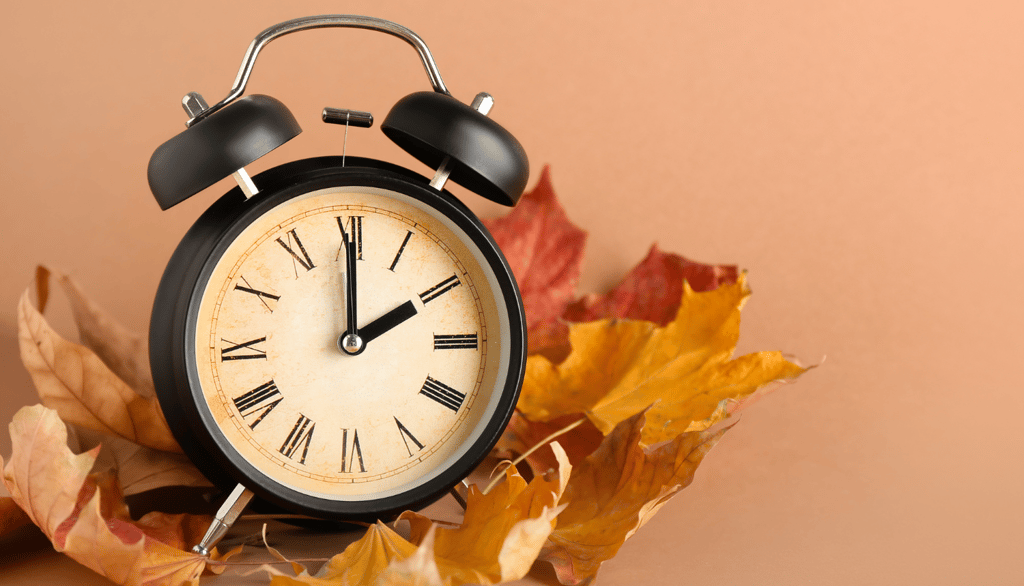Minimize the Impact of Turning Back the Clock
Twice a year we turn back our clocks. People’s feelings on it vary widely but one thing we do know? Shifting time by even just an hour can impact our health and wellness.
11/3/20232 min read


Twice a year we turn back our clocks. People’s feelings on it vary widely but one thing we do know? Shifting time by even just an hour can impact our health and wellness. We’ve broken down a few things to keep in mind.
How Can Daylight Savings Impact Your Health?
Disrupted Sleep Patterns
One of the most immediate and noticeable effects of daylight savings is the disruption of our sleep patterns. When we "spring forward" in the spring, we lose an hour of sleep, and when we "fall back" in the autumn, we gain an extra hour. While it may sound insignificant, even minor shifts in our sleep schedule can affect our mood, cognitive function, and overall well-being.
Mental Health Impact
The disruption of sleep patterns and the sudden changes in daily routines can take a toll on our mental health. The shift to DST has been associated with an increased risk of mood disorders, such as depression and seasonal affective disorder (SAD). For those already prone to these conditions, the abrupt time change can exacerbate their symptoms.
Circadian Rhythm Disruption
Our bodies rely on a circadian rhythm, a natural internal clock that regulates our sleep-wake cycles, appetite, and more. The abrupt changes caused by daylight savings can disrupt this rhythm, leading to issues like difficulty falling asleep or waking up at the wrong times.
Strategies to Mitigate the Impact
While we may not have control over the implementation of daylight savings time, there are strategies that individuals can employ to mitigate its impact on their health:
Gradual Adjustment
In the days leading up to the time change, gradually shift your sleep schedule by going to bed and waking up 15 minutes earlier or later each day. This can help your body adapt more smoothly to the new time.
Prioritize Sleep
Ensure that you get enough rest, especially during the days following the time change. Stick to a regular sleep schedule, create a comfortable sleep environment, and practice good sleep hygiene.
Light Exposure
Expose yourself to natural light in the morning, as it helps reset your circadian rhythm. This is particularly important during the days following the fall back to standard time, when the mornings are darker.
Maintain a Healthy Lifestyle
A well-balanced diet and regular exercise can help regulate your internal clock and improve your overall health, making it easier to adapt to time changes.
Need to check in with someone about your sleep, mental health, or any other wellness concerns? We always accept walk-ins, have an online appointment scheduler, and promise you’ll have a short wait time with exceptional customer care. Come see us today!

Site Links


Training Institute
Contact Us
824 S Diamond Street, Nampa, ID 83686-5960
(208) 936-7002
